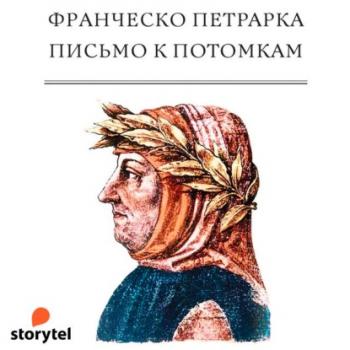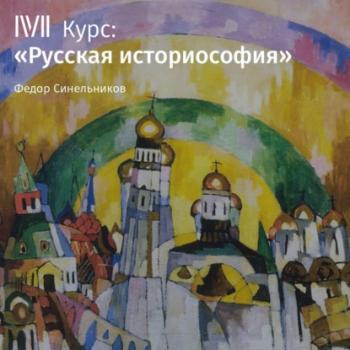Философия
Различные книги в жанре ФилософияÉtica bíblica cristiana
" Ética bíblica cristiana " se escribió para subrayar la unidad de la teología y la ética. Partiendo de la presuposición de que las Santas Escrituras son la única regla de fe y práctica, reconocemos que la Biblia es la fuente y la norma, no solamente para la doctrina, sino también para la ética. De acuerdo con esta perspectiva, no son disciplinas separadas, sino partes integrales del estudio de la revelación que Dios nos ha dado acerca de sí mismo y acerca de su voluntad para el hombre. Con razón, la ética cristiana se considera una subdivisión de la teología sistemática; se podría llamar la doctrina de la vida cristiana.
Unión con Cristo
La doctrina bíblica de la unión con Cristo, conocida como la doctrina más fundamental y central de la Biblia, lamentablemente es más desconocida en nuestros tiempos entre ellos que profesan conocer la Biblia.El Pastor Martin en estos capítulos desarrolla en una forma sencilla y clara la enseñanza, la aplicación y la base de nuestra salvación: la justificación, la santificación y la glorificación del creyente verdadero.
Las implicaciones prácticas del calvinismo
¿Qué es el calvinismo?, y ¿Qué diferencia hace en nuestras vidas como cristianos? La respuesta del pastor Albert Martin es que el calvinismo verdadero involucra una «visión de la majestad de Dios». En este tratado apremiante el autor describe el encuentro de Isaías con Dios y la manera en que este encuentro con el Rey entronado le condujo a un nuevo conocimiento de su propia pecaminosidad y la profundidad del perdón de Dios. Así abrumado con la soberanía de su Salvador Santo, y se entregó a Él sin reservación.De la misma manera, dice el autor, el calvinismo no es «leer un libro leído por Kuyper o Warfield» sino vivir una vida de auto – examinación, desconfianza de sí mismo, la santidad práctica y la dependencia con oración del Señor.Las implicaciones prácticas del calvinismo es mucho más que una defensa del calvinismo; en efecto, es un llamamiento pasionado al vivir auténtico y cristiano.
La fe ante el peligro
Los cristianos en todo el mundo enfrentan dificultades y amenazas de todo tipo como las tentaciones de desplazar la prioridad de la Palabra de Dios, o la de perder de vista la grandeza y santidad de Dios, o la de adoptar valores contrarios a los del evangelio en lugar de vivir de acuerdo con los estándares de Dios. Muchos años antes, la fe personal de Nehemías y la fe del pueblo de Dios enfrentaron amenazas constantes que no solo provenían de una oposición hostil sino también de tentaciones como las señaladas.
El autor explica, a la luz del mensaje de Nehemías, lo que significa vivir de acuerdo a las prioridades de Dios, de escuchar y obedecer a la Palabra de Dios y de sostener el servicio cristiano con fidelidad y determinación en medio de las adversidades. Apoyado por preguntas y sugerencias prácticas, aborda una serie de temas que son tan urgentes para los cristianos de hoy como lo fueron para el pueblo de Dios en Jerusalén en los días de Nehemías.
El lector encontrará un recurso valioso para la preparación de sermones. Es un libro escrito para todos los creyentes porque todos enfrentamos el desafío de mantener la fe en medio de las amenazas y los peligros.
Religion and the Social Sciences
More often than not it's a class in the social sciences that challenges the faith of students, not a class in biology. Does critical understanding of our religious traditions, institutions, and convictions undercut them? Or can a modern social scientific approach deepen faith's commitments, making us full participants in today's intellectual culture? In these conversations with eminent sociologists Robert Bellah and Christian Smith, leading scholars probe the religious potential of modern social science–and its theological limits.
Subterranean Fanon
The problem of change recurs across Frantz Fanon’s writings. As a philosopher, psychiatrist, and revolutionary, Fanon was deeply committed to theorizing and instigating change in all of its facets. Change is the thread that ties together his critical dialogue with Hegel, Marx, Freud, and Nietzsche and his intellectual exchange with Césaire, Kojève, and Sartre. It informs his analysis of racism and colonialism, négritude and the veil, language and culture, disalienation and decolonization, and it underpins his reflections on Martinique, Algeria, the Caribbean, Africa, the Third World, and the world at large.Gavin Arnall traces an internal division throughout Fanon’s work between two distinct modes of thinking about change. He contends that there are two Fanons: a dominant Fanon who conceives of change as a dialectical process of becoming and a subterranean Fanon who experiments with an even more explosive underground theory of transformation. Arnall offers close readings of Fanon’s entire oeuvre, from canonical works like Black Skin, White Masks and The Wretched of the Earth to his psychiatric papers and recently published materials, including his play, Parallel Hands . Speaking both to scholars and to the continued vitality of Fanon’s ideas among today’s social movements, this book offers a rigorous and profoundly original engagement with Fanon that affirms his importance in the effort to bring about radical change.
Universality and Identity Politics
The great political ideas and movements of the modern world were founded on a promise of universal emancipation. But in recent decades, much of the Left has grown suspicious of such aspirations. Critics see the invocation of universality as a form of domination or a way of speaking for others, and have come to favor a politics of particularism—often derided as “identity politics.” Others, both centrists and conservatives, associate universalism with twentieth-century totalitarianism and hold that it is bound to lead to catastrophe.This book develops a new conception of universality that helps us rethink political thought and action. Todd McGowan argues that universals such as equality and freedom are not imposed on us. They emerge from our shared experience of their absence and our struggle to attain them. McGowan reconsiders the history of Nazism and Stalinism and reclaims the universalism of movements fighting racism, sexism, and homophobia. He demonstrates that the divide between Right and Left comes down to particularity versus universality. Despite the accusation of identity politics directed against leftists, every emancipatory political project is fundamentally a universal one—and the real proponents of identity politics are the right wing. Through a wide range of examples in contemporary politics, film, and history, Universality and Identity Politics offers an antidote to the impasses of identity and an inspiring vision of twenty-first-century collective struggle.
Мир – это речь Бога. Практика творения. О связи речи с творением. Конспекты бесед с Добровольским А. В.
Как превратить свою речь в речь творца? Значимые результаты всегда совместны. Семья, учёба, политика или бизнес – мы везде окружены людьми. Человеческий результат теряет смысл вне общества, все наши достижения ничто без окружающих нас людей. Чем больший результат мы хотим получить, тем больше людей требуется для его создания, тем больше людей нам надо понять – и стать понятыми ими. Часть итогов исследования влияния речи и доречевых структур на результативность собрана в форме бесед о творении.
Письмо к потомкам
Франческо Петрарка – создатель европейской лирики, впервые обосновавший значение поэта как самобытного мыслителя. В данном издании представлены главные философские труды Петрарки «Письмо к потомкам» и «Книга бесед о презрении к миру». Петрарка показывает себя другом сразу множества эпох и отстаивает обновленный идеал мудреца, не уходящего от мира, а открытого неожиданным событиям мира. Издание снабжено вступительной статьей доктора филологических наук Александра Маркова, раскрывающей место Петрарки в истории мировой культуры. © Storysidе
Лекция «Феномен русской историософии»
Уникальность и своеобразие русской историософии. Ее место в истории мысли и современности.









